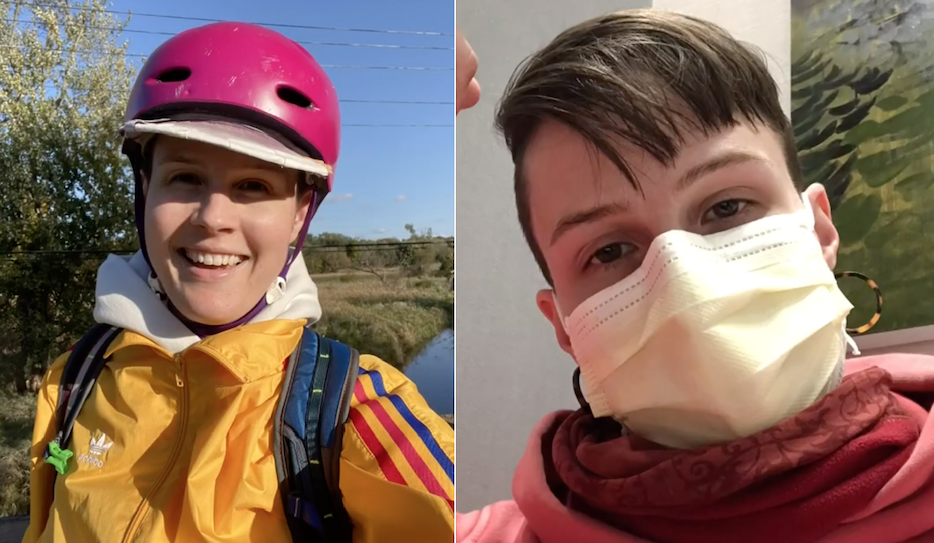The young woman, who was a competitive athlete before she contracted COVID-19 and experienced a 15-month long journey of severe symptoms., says she ‘went from being a very active person to barely being able to stand for five minutes without getting so acutely dizzy.’ Her initial symptoms, which include body aches, fatigue, chest pain, heart palpitations and dizziness, worsened over time and she had to take medical leave for three months. More than two years after her initial infection, the 36-year-old woman said that she has made mostly a full recovery, but still experiences fatigue and cognitive symptoms.
The 36-year-old woman from Illinois, Emily Caffee, told WTTW News that she was a competitive athlete before she contracted COVID-19 in 2020. Unfortunately, her symptoms worsened over time and she had to take medical leave for at least 3 months. The young woman said she went from being a ‘very active person to barely being able to stand for 5 minutes without getting very acutely dizzy.’
Now, two years after her initial infection, the 36-year-old woman also said that she has made mostly a full recovery, but still experiences fatigue and cognitive symptoms.
She reportedly told WTTW News:
“Before my infection, I was working as a hospital physical therapist – a very physical, cognitively demanding job – training six days a week for indoor rowing competitions.”
Unfortunately, the young woman contracted COVID-19 in 2020 and experienced a 15-month journey of severe symptoms.
During an interview with CBS News, Emily Caffee reportedly said:
“I went from being a very active person to barely being able to stand for five minutes without getting so acutely dizzy. Having zero standing tolerance.”
The young woman from Illinois discovered that she was part of a group infected with the virus considered COVID long haulers.
Even though Emily has gotten back to rowing, she said she is no where near competing again. Emily also believes that the most frustrated part of recovering from long COVID-19 ‘was how much of a roller coaster it was.’
According to WTTW News, Emily’s experience with long COVID-19 isn’t unique. According to a Northwestern Medicine study of 52 long haulers, who were not hospitalized and only experienced mild symptoms like cough and sore throat, found that most continued to experience neurologic symptoms, fatigue and compromised quality of life up to 18 months after their initial infection.
The chief of neuro-infectious diseases at Northwestern Medicine, Dr. Igor Koralnik, said that they were surprised by the persistence of most of the debilitating neurologic symptoms of their patients.
The researchers also discovered that there was no significant change in the frequency of most neurologic symptoms, including brain fog, numbness/tingling, headache, dizziness, blurred vision, tinnitus and fatigue, between long haulers’ first and follow-up appointments at the clinic.
According to the study, researchers found increases in heart rate and blood pressure variations (35% vs. 56%) and gastrointestinal symptoms (27% vs 48%) at follow-up appointments compared with initial visits.
Of the 52 patients in the study, 73% were female and the average age was 43. While 77% of participants received a COVID-19 vaccine, researchers say vaccination didn’t have a positive or detrimental impact on cognitive function or fatigue.
Dr. Igor Koralnik, chief of neuro-infectious diseases at Northwestern Medicine, also said:
“Vaccination didn’t cure long COVID and it didn’t make long COVID worse. We encourage patients to get vaccinated and boosted according to CDC recommendations.”


